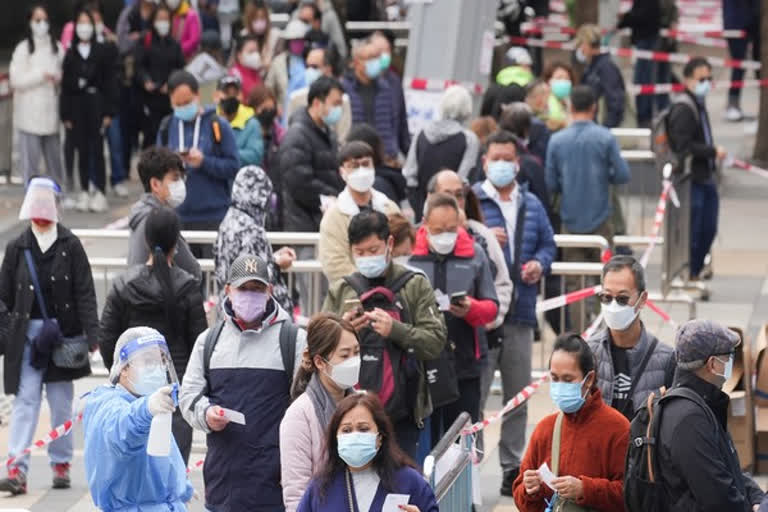Jakarta: Almost three years after officials announced the first confirmed case of COVID-19 in Indonesia, the country's leader said on Friday they are lifting all coronavirus-related restrictions nationwide. President Joko Widodo said Indonesia's COVID-19 situation is under control after observing improvements over the past 10 months, allowing the country to abandon the large-scale social restrictions on crowds and people's movement it had adopted in April 2020.
However, Widodo called on people to remain careful and alert as the pandemic has not ended completely. He told a news conference at the presidential palace in the capital, Jakarta, that the use of masks in crowds and closed spaces should continue, though it wouldn't be required.
During the pandemic, instead of implementing a nationwide lockdown, his administration applied two systems: PSBB, which refers to large-scale social restrictions, and then PPKM, a tiered system to curb public mobility. Both policies were critical in the government's pandemic response. The PSBB was first imposed in the world's fourth-most populous nation in April 2020, a month after the first case was recorded, as a compromise to growing calls for a stringent lockdown.
It was reworked into the emergency PPKM scheme in July 2021, when the delta variant-fuelled second wave of infections swept the country. The emergency status was then replaced by the four-level PPKM system, which Widodo announced would be abandoned immediately. A study found that almost all Indonesians have developed antibodies against SARS-CoV-2, the virus that causes COVID-19, boosting confidence that an explosion of cases in Southeast Asia's largest economy could be avoided.
In July, researchers with the Health Ministry and the University of Indonesia examined blood samples from 20,501 individuals in 100 cities across the archipelago and found that 98.5 per cent of the respondents had antibodies against the virus, due to either vaccination or past infection.
The figure is 10.2 percentage points higher than the 87.8 per cent found in the previous survey from December 2021. The country plans to conduct a third survey next month. The government will also shift its response efforts to an endemic approach as the virus still exists in a community but becomes manageable as immunity builds, COVID-19 Handling Committee chair Airlangga Hartarto said in a separate news conference Friday. Based on the World Health Organization criteria, Indonesia's risk assessment status is at Level One.
Nationally, that means COVID-19 in Indonesia has reached the endemic stage, said Hartarto, who is also Coordinating Minister for Economy. He said the Health Ministry's upcoming serology survey would be used as the basis for future mitigation policies. Indonesia had largely recovered from its delta surge, which was among the worst in Southeast Asia.
In July 2021, a then-record of about 56,700 daily new cases saw the delta variant overwhelming hospitals on the main island of Java. In February, omicron set a new high of over 64,700 new infections. Indonesia confirmed 552 daily cases and 10 deaths from COVID-19 on Friday. Overall, the country has had more than 6.7 million infections the second highest in Southeast Asia behind Vietnam.
The daily cases of 1.7 per 1 million residents, the weekly positivity rate at 3.35 per cent and the death rate at 2.39 per cent are all below the WHO standard, Widodo said. With 160,583 deaths, the country ranks No 2 in Asia and No 11 in the world. However, scientists' data indicated that the number of deaths may be much higher than what has been reported because those who died with acute COVID-19 symptoms but had not been confirmed or tested were not counted in the official death figure. About 74.47 per cent of Indonesia's 234.6 million people eligible for shots were fully two-dose vaccinated, and about 29 per cent had a first booster dose while just 0.5 per cent had a second booster. (AP)



